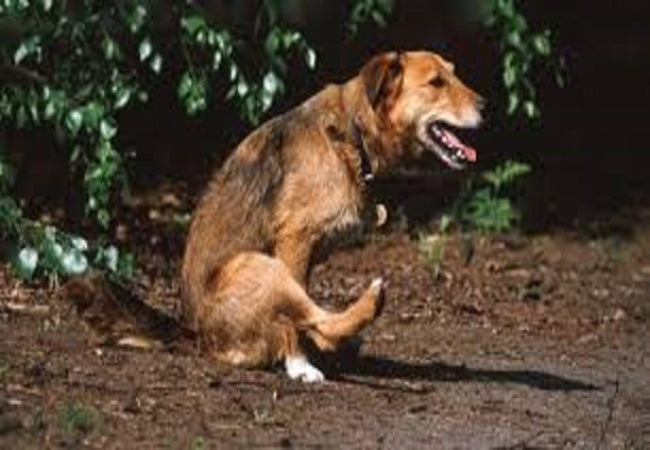Why Is My Dog Scooting? 2025 What It Means & How to Stop It 🐶✨

In this article
Why Is My Dog Scooting? 2025 What It Means & How to Stop It 🐶✨
By Dr. Duncan Houston BVSc
Your dog suddenly drags their bottom across the floor—and while it might seem funny, scooting is usually a sign that something’s not right back there.
I’m Dr. Duncan Houston, veterinarian and founder of Ask A Vet. Let’s break down why dogs scoot, when to worry, and what you can do to help your pup feel comfortable again.
🛋️ What Is Scooting?
- Scooting is when a dog drags their rear across the floor, carpet, or grass using their front legs
- It usually means they’re itchy, uncomfortable, or trying to relieve pressure
🔍 Most Common Causes of Scooting
1. Anal Gland Issues
- Anal glands can become full, impacted, or infected
- Dogs may scoot to relieve pressure or pain
- Other signs: licking the area, foul fishy smell, straining to poop
2. Worms (Especially Tapeworms)
- Segmented worms can cause irritation around the anus
- Look for rice-sized white pieces near the tail or in the stool
3. Skin Allergies
- Allergic dermatitis can make the entire rear end itchy
- Often accompanied by licking paws, ear infections, or red belly skin
4. Dirty Rear or Matted Fur
- Long-haired breeds may have poop stuck in the fur
- Grooming or bathing helps prevent scooting in these cases
5. Rectal Irritation After Diarrhea
- Recent soft stools may irritate the sensitive skin near the anus
🧪 When to See a Vet
- Scooting happens daily or frequently
- Signs of blood, swelling, or intense licking
- The dog shows pain while sitting or pooping
- Presence of tapeworm segments or live worms
🩺 How Vets Treat Scooting
- Expressing the anal glands (manually or under sedation)
- Treating infections or abscesses with antibiotics
- Fecal exam and deworming if worms are present
- Managing underlying allergies or dietary issues
🏠 At-Home Prevention
- Feed a high-fiber diet to help express glands naturally
- Use vet-approved dewormers regularly (every 3 months)
- Wipe your dog’s rear after diarrhea episodes
- Keep the fur trimmed around the anus for hygiene
📦 Helpful Tools from Ask A Vet
- Dual Pocket Dispenser – Keep wipes and poop bags on hand at all times
- Ask A Vet – Get a vet opinion fast if your dog is scooting repeatedly
📋 Summary Excerpt
Scooting might look silly, but it’s usually your dog telling you something’s wrong. A vet breaks down the causes, treatments, and prevention tips for a healthier rear end.
❓ FAQs
-
Q: Should I express my dog’s anal glands at home?
A: Not unless you’ve been shown by a vet. Incorrect technique can cause injury or infection. -
Q: What if my dog only scoots once?
A: Occasional scooting isn’t usually serious, but if it becomes frequent or obsessive, get it checked.
-
Q: Can grooming prevent scooting?
A: Yes—trimming fur and cleaning the area reduces irritation, especially in long-haired breeds.






